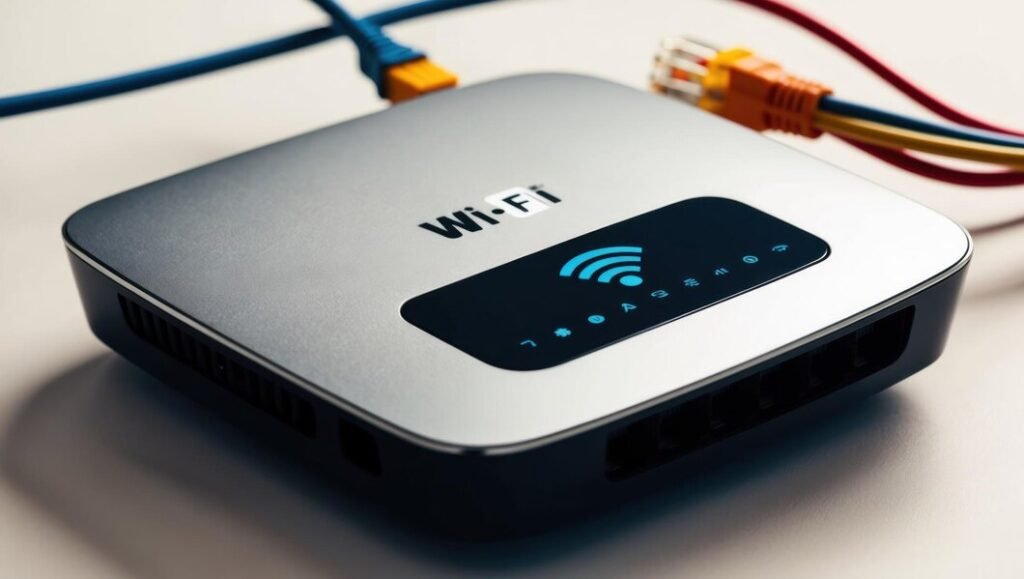When setting up the internet at home or in the office, you might wonder which is better: Wi-Fi or Ethernet? Both have pros and cons, but which one is best for you depends on your needs. Let’s dive into the differences and help you decide.
What Is Wi-Fi?
Wi-Fi is a way to connect to the internet without wires. It lets you move around your home or office while staying connected. Most people use Wi-Fi because it is easy to set up and works for phones, laptops, and other smart devices.
For example, many people who use dodo internet prefer Wi-Fi for its flexibility. You can check out more about dodo internet for affordable Wi-Fi options.

What Is Ethernet?
On the other hand, Ethernet uses a cable to connect your device to the internet. You plug in a cord directly from your modem or router to your computer. This wired connection is usually faster and more reliable than Wi-Fi. But it doesn’t let you move around as easily.
Speed: Which Is Faster?
Ethernet is often faster than Wi-Fi. This is because it uses a direct connection, which doesn’t lose speed as much as Wi-Fi. If you are gaming or downloading large files, Ethernet is usually the better choice.
However, Wi-Fi speeds are improving every year. Services like optus internet offer fast Wi-Fi connections that can handle streaming, gaming, and more. If you’re curious about this, check out optus internet.
Convenience: Which Is Easier to Use?
Wi-Fi wins in terms of convenience. You don’t have to deal with cables, and you can connect many devices at once. You can use Wi-Fi all over your home or office. It’s perfect for phones, tablets, and laptops that need to move around.
Ethernet, on the other hand, keeps you in one spot. The device needs to stay connected to the cable. So, if you prefer working at a desk without moving, Ethernet could work for you.
Reliability: Which Is More Reliable?
Ethernet is more reliable than Wi-Fi because it doesn’t suffer from interference. Sometimes, Wi-Fi signals can be blocked by walls or other devices. This can make the connection slower or even drop.
Ethernet keeps a steady and strong connection because it uses a cable. If your work depends on having a stable internet connection, Ethernet is a good option.
Wi-Fi is improving but can still have issues in large homes or offices with many walls.
Security: Which Is Safer?
Both Wi-Fi and Ethernet can be secure, but Ethernet has an edge. Since Ethernet is a wired connection, it’s harder for hackers to access. Only devices physically connected to the Ethernet cable can get onto your network.
Wi-Fi, on the other hand, can be hacked if you don’t have a strong password or good security settings. You should always use a password to protect your Wi-Fi connection.

How to Decide: What Do You Need?
Choosing between Wi-Fi and Ethernet depends on what you need. If you value speed and stability, Ethernet is your best option. If you need convenience and flexibility, Wi-Fi is the way to go.
Use Wi-Fi If:
- You want to move around your home or office.
- You need to connect many devices at once.
- You don’t want to deal with cables.
Use Ethernet If:
- You need a fast, stable connection for gaming or work.
- You are okay staying in one spot while using the internet.
- You want the most secure connection possible.
How to Combine Both Wi-Fi and Ethernet
Some people use both Wi-Fi and Ethernet for different needs. For example, they may use Ethernet for their desktop computer and Wi-Fi for their phones and tablets. This setup gives you the best of both worlds. It can provide fast speeds where you need them and flexibility for other devices.
Final Thoughts
In conclusion, both Wi-Fi and Ethernet are great options, but they work best for different situations. If you need a fast, stable connection, go with Ethernet. However, if you want convenience and flexibility, Wi-Fi is the better choice. Consider what’s most important to you and make the decision that fits your needs.
Key Takeaways:
- Wi-Fi is more flexible and easy to use but can be slower and less reliable.
- Ethernet is faster and more reliable but requires cables and limits movement.
- Choosing the right one depends on your internet needs for home or office use.


